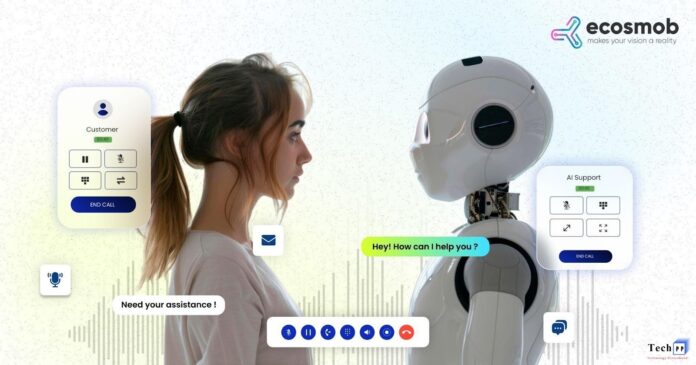Conversational AI! Instant gratification is the new trend. Modern customers live in an ‘on-demand world’. They stream content instantly, order products with same-day delivery, and book rides or food deliveries with a single tap. When it comes to support, long wait times simply don’t fit into that reality. To keep up with this on-demand mindset, businesses need modern call handling solutions that prioritize speed and intelligent routing. Therefore, modern contact center solutions are built to cut delays, route calls intelligently, and prioritize speed. Because if you can’t value your customer’s time, your competitor will!
Let’s start with why instant gratification drives customer behavior.
Why is Understanding Instant Gratification Important for Customer Service?
Understanding the psychology of instant gratification allows enterprises to design modern contact center solutions that prioritize speed and efficiency without sacrificing quality. By anticipating delays and reducing friction points, businesses can prevent frustration before it starts. Every extra second on hold triggers frustration, which can turn even a minor issue into a major annoyance. What are the consequences of neglecting this?
Let’s learn-
- Emotional Response: Delays create anxiety and impatience. Customers often perceive slow service as a lack of care, regardless of the quality of the eventual solution.
- Behavioral Impact: Frustration can lead to call abandonment or negative interactions, harming both immediate resolution rates and long-term relationships.
- Expectation Gap: Customers compare your response time to their fastest digital experiences. A slow call, even if effective, feels subpar.
Being fast keeps customers satisfied, but the real impression of your brand comes from how smoothly and professionally every interaction is handled, which ultimately impacts brand perception.
How Customer Service Quality Shapes Brand Reputation?
Customer service is no longer just a department; it’s the front line of your brand. Long hold times and inefficient processes send signals about your company’s professionalism and reliability. Even if the problem is eventually resolved, the memory of a slow or awkward interaction can overshadow the solution itself.
Let’s get into the details-
- First Impressions Matter: A quick, smooth call communicates competence; delays communicate neglect.
- Trust and Loyalty: Customers remember how they were treated. Positive interactions strengthen loyalty, while poor experiences erode trust.
- Reputation Multiplier: In the age of social media, a single negative experience can spread rapidly across multiple channels, significantly impacting potential customers.
AI-powered contact center solutions can help maintain consistency and quality. While perception shapes loyalty, the real costs of slow call handling can impact the bottom line, which is where the concept of hidden opportunity costs comes into play. The next step is to see how slow customer support can directly impact your finances.
How Slow Customer Support Affects Your Business Revenue?
The risks of slow customer support for businesses extend beyond just one unhappy caller. Slow response times don’t just frustrate customers; they cost money. Every abandoned call, delayed query, or canceled subscription has a direct impact on revenue. Beyond immediate losses, there’s also a ripple effect of diminished trust and negative word-of-mouth that can influence long-term growth.
Let’s break down the costs-
- Lost Sales Opportunities: Customers abandon calls or chats before their issues are resolved, resulting in potential conversions being missed.
- Customer Churn: Slow response times encourage clients to switch to competitors who offer faster, smoother support.
- Brand Reputation Damage: Negative experiences quickly spread online or through word of mouth, affecting future prospects.
- Reduced Operational Efficiency: Longer calls and repeated follow-ups overburden agents, resulting in increased staffing and training costs.
- Lower Customer Loyalty: Customers tend to remember slow service more than the resolution itself, which can weaken long-term relationships.
- Hidden Revenue Loss: Delays reduce upsell, cross-sell, and retention opportunities that could have been captured with faster support.
Some Deeper Business Impacts of Slow Support-
- Data Fragmentation: Repeated queries and scattered notes create knowledge gaps for agents.
- SLA Breaches: Delays can violate service agreements, triggering penalties or disputes.
- Agent Burnout: Slow workflows increase stress and turnover, affecting service quality.
- Ineffective AI Use: Poorly routed calls prevent automation from improving CX.
- Distorted Analytics: Delays can skew metrics like handle time and satisfaction scores.
- Cross-Department Bottlenecks: Backlogs spill into sales, billing, or tech teams, slowing operations.
Long wait times for customers incur costs, so businesses are now focusing on making every second count. One of the most effective ways to achieve this is by designing seamless transitions between bots and agents. Let’s explore this further.
How to Fix Call Transfers in Contact Centers?
Customers are open to engaging with automation, but the transition to a human agent is where many experiences fall apart. Being forced to repeat information is one of the fastest ways to frustrate a caller.
To avoid this, businesses need to implement the following practices:
- Context retention: Agents must receive the full conversation history.
- Smart escalation rules: Automation should know when it’s time to pass the call along.
- Humanized messaging: Voicebots should reassure the caller that they are being connected to the right expert.
This is the advantage of conversational AI for enterprises: it ensures the conversation feels like one continuous journey, not a series of disconnected steps.
Furthermore, when linked with AI, enterprise contact center solutions can handle tasks more efficiently and deliver a smoother, more personalized customer experience. However, the next big question is whether automation itself can add value without compromising the human touch. Now, let’s take a closer look.
How Automation Handles Repetitive Tasks Without Hurting CX?
The notion that automation equates to impersonal service is outdated. In fact, yes, automation can strengthen the customer experience and contact center as a service, if used wisely. Tasks like appointment booking, account checks, or order tracking are repetitive by nature, and customers expect them to be solved instantly.
Let’s see how automation supports customer experience:
- Routine Task Management: Automates repetitive queries such as balance checks, appointment scheduling, and order tracking.
- Faster Resolutions: Reduces wait times and improves first-call resolution rates.
- Consistency Across Channels: Ensures standardized responses across voice, chat, and email.
- Agent Enablement: Frees human agents to handle complex issues that require empathy and critical thinking.
- Error Reduction: Minimizes human mistakes in repetitive or transactional tasks.
Automation proves its usefulness in repetitive tasks, but let’s explore how pairing it with human support creates a hybrid model that delivers the best of both worlds.
How Hybrid AI and Human Support Can Improve Call Handling?
Relying solely on humans makes support slow. Relying solely on AI can make interactions feel impersonal. The sweet spot lies in a hybrid model where both work hand in hand.
Here’s how enterprises benefit from a hybrid setup:
- AI for scale: Automating FAQs, routing, and simple troubleshooting.
- Humans for empathy: Managing sensitive, complex, or emotional cases.
- Continuity for customers: Smooth journeys where technology supports, not replaces, human effort.
By combining both, modern call handling solutions ensure efficiency without sacrificing personalization. This balance is what keeps enterprises ahead in today’s competitive environment.
ALSO READ : Pdsconnect2: Complete Platform Overview
Wrapping Up
Patience isn’t just shrinking; it’s gone. The modern customer values time above all else. Enterprises that embrace AI-powered contact center solutions and adopt modern call handling solutions will stand out for one reason: they respect that time. At Ecosmob, we focus on helping enterprises implement AI-powered contact center solutions and conversational AI for smoother, faster, and more efficient customer interactions.
Our approach ensures that automation complements human support, enabling businesses to enhance customer satisfaction, reduce wait times, and streamline operations, all while maintaining the human touch.


